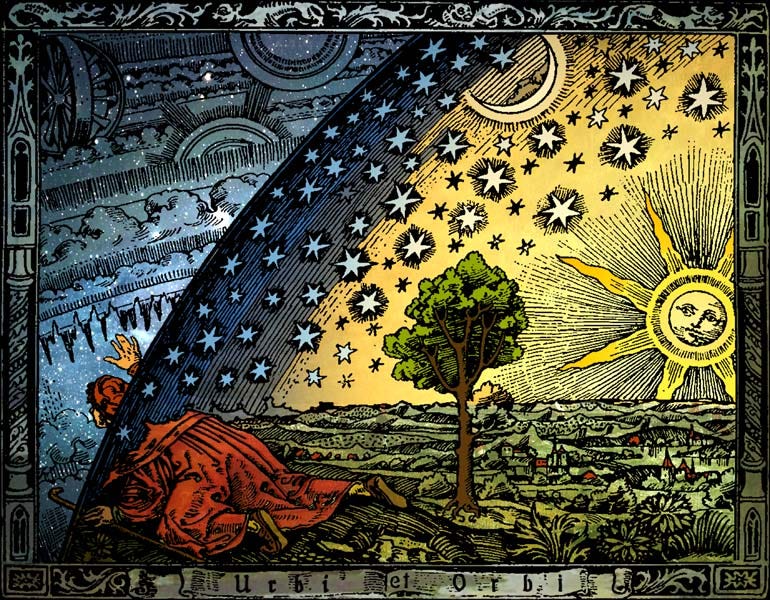Is the Universe Self-Aware, or Just Impersonal?
Why Believing in a 'Something Greater' Universe Without a Personal God Leaves Us Stuck on Borrowed Capital: Wind and Wickedness. Gravity and Goodness. Microwaves and Mates.

Find us on Medium.com
Or X
Or Insta:
instagram.com/streettheologianapologetics/
Most people aren’t atheists
Many people find a nihilistic materialist form of atheism an unfeasible way to live. In many respects I don’t blame them. Very few people really live day to day life thinking they’re a bag of particles here by accident with no ultimate values, purpose or meaning to live for.
Or that nothing immaterial exists as they go about trying to follow laws of logic and maths they can’t see, feel, hear, smell or taste. Meanwhile, exploring fine beauty in music and art, and talking about immoral, deceptive and wicked acts of others as if some sort of immaterial objective moral code exists for everyone on this planet that is little more than matter and motion felt by bags of meat having their own subjective experience of particles.
Living on borrowed capital
In other words, they’re living on borrowed capital.
Acting in many respects of their life as if meaning, purpose, value and immaterial truth does exist while denying these very same aspects when it comes to a conversation about the deeper things in life.
Whether they have a purpose or intent in denying these things I’ll leave for you to decide..
The “something greater” crowd
Sensing the lack of appeal in holding a materialist position, many concede there is 'something greater,' as psychiatrist Iain MacGilchrist explains in describing the rise of people who think there is something greater but don’t hold to any traditional religious worldviews (MacGilchrist estimates around 80% of young people in the UK fall into this category). However, this is still a far cry from the personal, relational God of Christianity.
The Universe
A common term used amongst the “there’s something greater” crowd is, the universe. Yet, not the universe as a science lecturer would normally explain it but as a quasi-spiritual entity that responds to people, is looking out for people, rewards good, is working a plan behind the scenes and has a purpose.
In fact, I’ve even met people who would call themselves atheists but believe the universe is working its mystical purpose for their life.
Impersonal Force v Personal God
Yet, under this view, the universe is not a person nor is there an Ultimate Being behind the universe.
In other words, the universe is an impersonal force. An impersonal force like gravity, microwaves, sun rays, wind and heat.
However, thinking the universe has a plan for you, while claiming ultimately the universe is an impersonal force, is a self-contradictory position. Impersonal forces do not have self awareness, a will, rationality etc.
Wind and Wickedness
If the wind blows your clothes from your clothes line to your neighbours house you don’t call it a thief. It didn’t plan to steal your clothes.
Likewise, if the wind holds the door open for you as you walk into a building it is not because the wind is a polite person.
Gravity and Goodness
If gravity forces your son into the ground as he falls off his bike you don’t call it a bully.
Microwaves and Mates
You don’t turn on a microwave and try have a relationship with the frequency it emits or befriend the frequencies in an infra-red sauna.
Impersonal forces have no desires. No feelings. No plans. No purpose. No self-awareness. No will.
Escaping the obvious?
What if the talk of a 'universe with a purpose' is really just an attempt to avoid the obvious? The obvious being that if 'something greater' has traits like self-awareness, rationality, and purpose, then this 'something greater' must be a Transcendent Being—God.
And if the universe itself had a beginning, then it stands to reason that this Being is the Creator, not just an impersonal force.
Consciousness is fundamental?
Some will argue based on the observer effect in quantum physics that consciousness is fundamental, our universe stems from another mind or even that everything in the universe is in some respect conscious. However, if consciousness, not matter, is fundamental and our universe had a beginning it would make sense an Ultimate Conscious Being is the fundamental source of our universe not an impersonal force under this line of reasoning.
We’re all one with the universe?
Others might try and argue that we’re all ultimately one. Differences are illusory. Yet, if you’re one and the same as the universe, how can the universe have a purpose that is beyond you?
Also if everything is one is there really any difference between truth and lies, good and evil, a tree trunk and a baby’s brain? You most certainly don’t live your day to day life thinking everything you come across is all the same thing!
There is connection and unity within the world yet also division and difference. This is what we would expect if we all live and move and have our being in God but are not God ourselves and are also different persons from one another.
You didn’t form the universe so it is delusional to call yourself God.
Unity and Diversity
Christianity uniquely resolves the ancient tension of the one and the many: the triune God embodies perfect unity and diversity within Himself, as Father, Son, and Holy Spirit—three distinct persons in one divine essence.
This provides the foundation for a world where both connection and individuality are real and meaningful.
In contrast, monistic worldviews collapse all distinctions into 'oneness,' erasing difference and denying the reality of relationships. On the other hand, atomistic materialism fragments existence into isolated parts, failing to account for the unity that binds them together.
Also living on borrowed capital?
It seems much like atheists, proponents of such a view are also living on borrowed capital. Wanting the benefits they associate with God existing while avoiding the existence of a Transcendent Being they are personally accountable to.
The solution
Many worldviews propose an impersonal absolute—whether it’s the materialism of atheism or the oneness of certain Eastern religions like many branches of Hinduism and Buddhism. But Christianity offers something radically different: a personal, self-aware God who is both transcendent and immanent. This God not only created the universe but, through the person of Jesus, entered into it to bear the consequences of human sin and suffering.
Oppressed by the religious and political rulers of his day. Dying for those who hated Him.
Disconnected so we could be connected to Him. Facing the darkness of humanity to bear the consequences for the darkness that lies within us.
While other worldviews may acknowledge some form of higher power, Christianity provides a radical solution to human suffering, offering not just answers, but a way to enter into a deeply transformative relationship with a God who knows suffering firsthand.
In Christianity, prayer is not about sending frequencies to an impersonal force but to a Being. A Being who wants to enter into relationship with you.
How do you think these different worldviews stack up? Do you think Jesus is Lord, liar, lunatic or legend?
Ultimately, the choice remains: will you settle for a vague, impersonal spirituality that leaves you in control, or do you confront the profound claims of Jesus Christ, a figure whose life demands more than a casual response, noting that if Someone Greater really does exist, the terms are not your terms to set? This is a reality that demands a response.
The Life-Force is a sort of tame God. You can switch it on when you want, but it will not bother you. All the thrills of religion and none of the cost. Is the Life-Force the greatest achievement of wishful thinking the world has yet seen?
- CS Lewis, Mere Christianity








